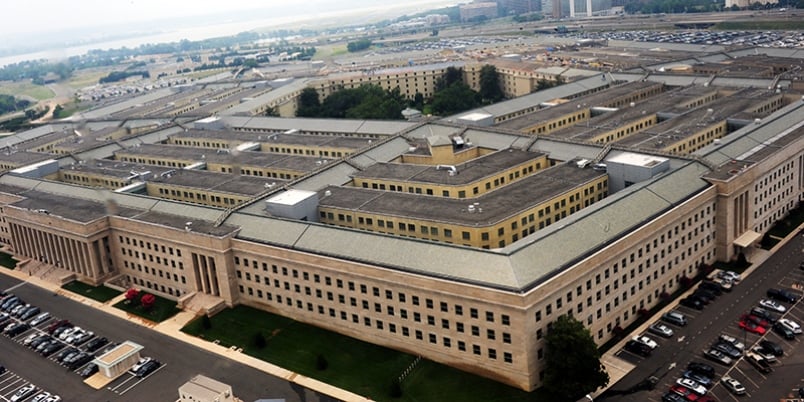 The next National Defense Strategy, scheduled for release next month, must spell out “what are we going to do; when are we going to do it; and who’s going to do it,” the former civilian chief of Pentagon acquisition said Wednesday.
The next National Defense Strategy, scheduled for release next month, must spell out “what are we going to do; when are we going to do it; and who’s going to do it,” the former civilian chief of Pentagon acquisition said Wednesday.
Ellen Lord, speaking at an Atlantic Council online forum, said the secretary of defense should say, “these are the types of scorecards I want to see.” This way, the strategy would have set “actual goals … to bring this NDS to life,” she said.
While expecting the strategy to be evolutionary, rather than revolutionary, former CIA Director David Petraeus said he – like Lord – is concerned about implementation. “What happens on Capitol Hill when it comes to procurement” as the NDS goes through the authorization and appropriations processes, the retired Army general asked rhetorically.
Lord added later that while the key is technology in the strategy, the Pentagon itself has to examine how it goes through its Planning, Programming, Budget and Evaluation, or PPBE, process to ensure it’s meeting the NDS’s goals before it sends acquisition requests to Congress.
“There has to be more substance” to the document to make it work with allies, who are asking “where’s the beef,” retired Marine Corps Gen. James Cartwright said. He said a “simple thing we can do” is share artificial intelligence advances with them. He suggested devising a tiered metric for AI similar to the one the Society of Automotive Engineers, or SAE International, has for car manufacturers.
Later, he added that by sharing unprocessed AI data with “all our allies, we bring diversity and scale” to counter powers like China and Russia that they cannot match.
“The time is now to lean forward” in sharing technologies with allies, as is being done with the agreement between Australia, the United Kingdom and the United States, or AUKUS, “so we can build interoperable systems,” said Lord.
But Petraeus offered a word of caution. “There is an enormous gulf between the United States and everyone else” in terms of defense spending and technology “and it has grown” over the last two decades, he said.
Noting several times that the U.S. has encouraged European allies to spend more on their own defenses against an aggressive Russia, the fact is “NATO cannot act without the U.S.,” which was evident in the pullout from Afghanistan, and that would be the case in Ukraine as well if the crisis there escalates. Russia in recent weeks has amassed troops on its border with Ukraine.
The Europeans “are very much on the peacekeeping end of things,” like Bosnia, he said.
As for future agreements like AUKUS, Lord said “it all comes back to capability” in buying systems from allies. Questions that should be posed in these transactions, as is done with domestic suppliers, include “do they have cyber secure networks” and “can those weapons systems not be hacked when in use?”
A former vice chairman of the Joint Chiefs of Staff, Cartwright added “we’re going to have legacy systems for the next 30 years” in America’s inventory. If the Pentagon can’t bring these systems to a mid-level tier, “you ought to divest it” to invest in the future.
Lord and Cartwright also emphasized speed down to the millisecond in building defense systems using AI and space-based and cyber platforms and networks. Assessing potential great power enemies, Cartwright said, “they’re not going to give us a geographic place to attack.”
An acquisition goal should be to get a weapons system “in the hands of a warfighter to experiment with,” Lord added, “this isn’t a flight checklist… give everyone a little breathing room.”
All agreed that the strategy has to include allies in a meaningful way.
“Consultation, consultation, consultation,” Petraeus said, as NATO heads into negotiations with Russia. This reflects the variety of approaches among the 30 members as to how to tackle an issue as tricky as Ukraine.
Cartwright said, “consultation is number 1. … Number two is sharing” of knowledge. The U.S. needs to have “the wherewithal to say ‘I can do this, I can’t do that.’”





